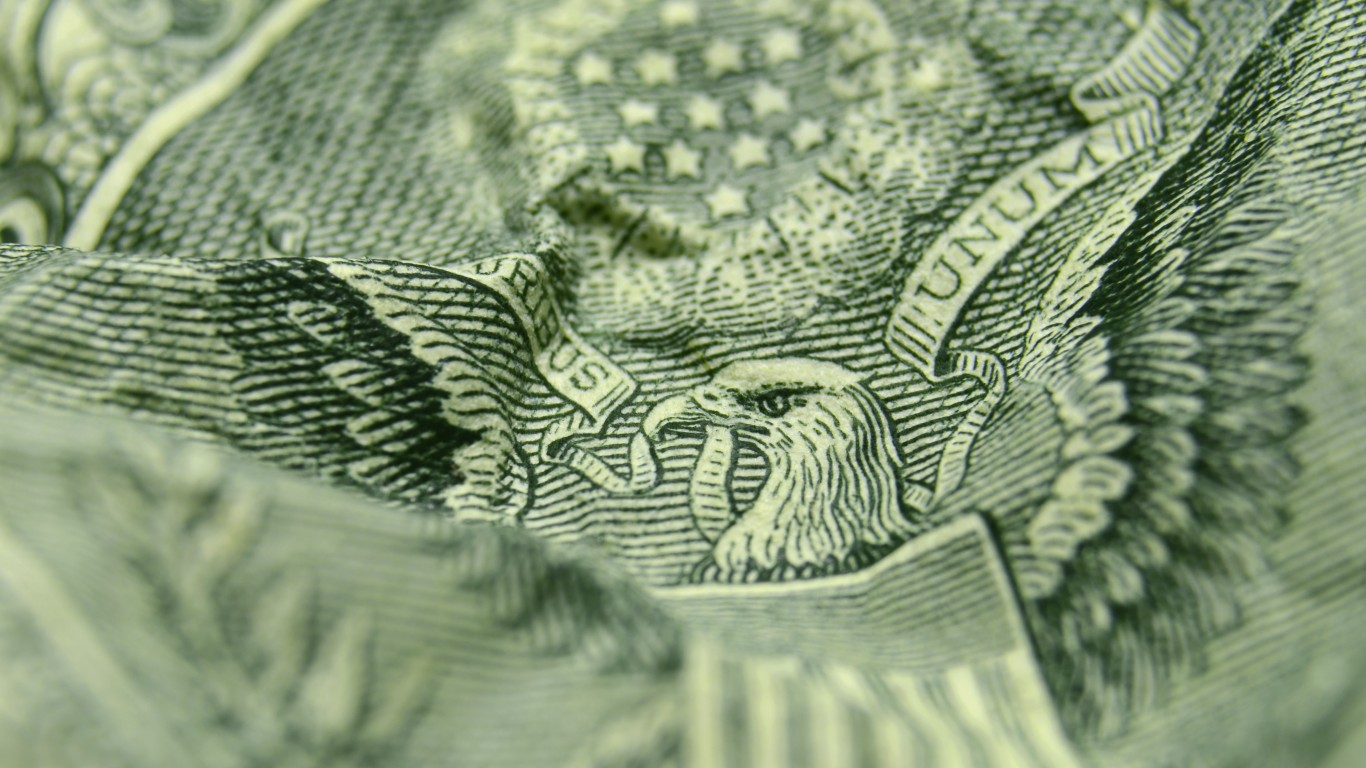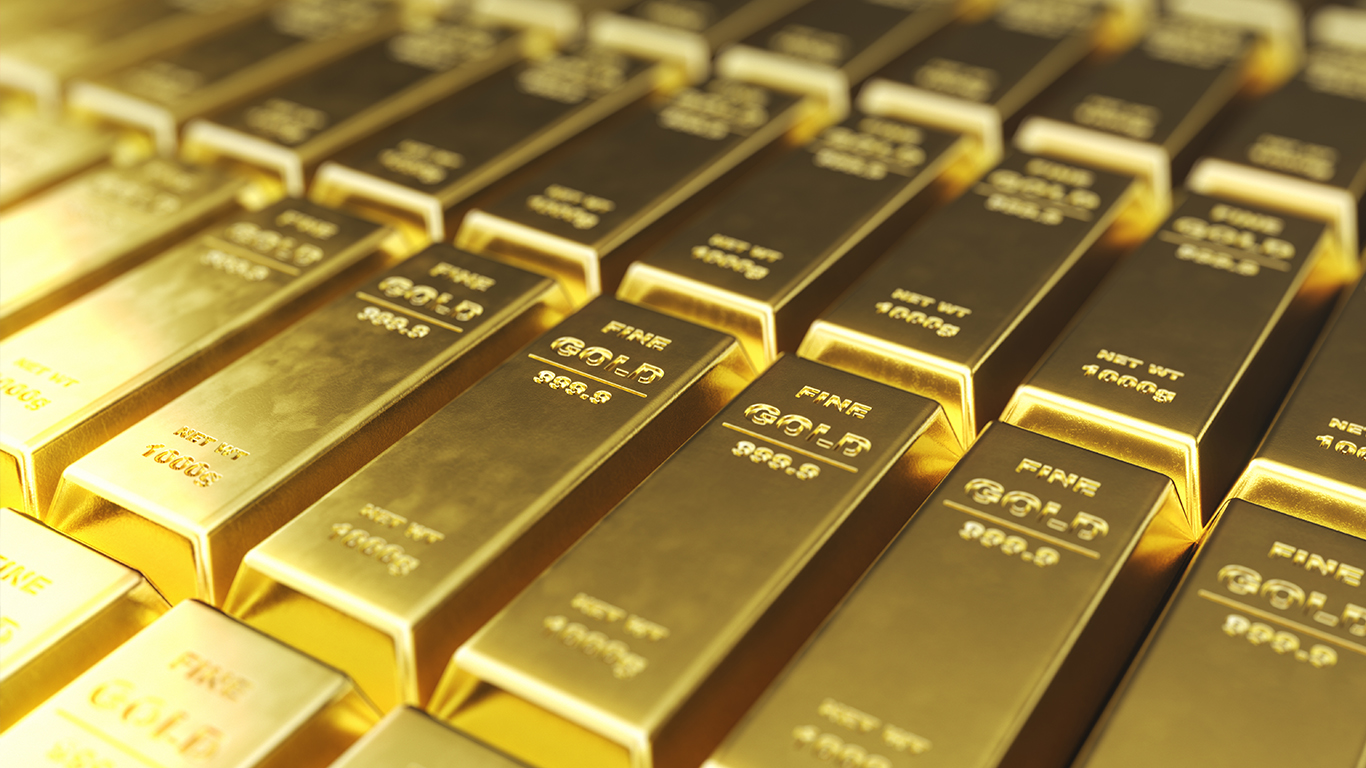
Gold prices jumped 13% in 2023 (spot gold price) — their first time closing higher on the year since 2020. What’s more, gold prices are expected to continue to rise in 2024, according to Reuters. Often considered a hedge against inflation and market turmoil, gold is also an important component of countries’ reserves. (See female trailblazers on global currency.)
Central banks hold gold in their reserves “because of its safety, liquidity and return characteristics — the three key investment objectives for central banks,” according to the World Gold Council. Holding gold allows central banks to trade it, diversify their holdings, and to use it as collateral, among other uses. Of course, not all countries have gold in their reserves.
To determine the countries that own the world’s gold, 24/7 Wall St. reviewed data on gold reserves from the World Gold Council. Countries were ranked based on their total gold reserves as of October 2023 (or the most recent date available). The WGC calculates the value of gold reserves using the LBMA (London Bullion Market Association) Gold Price, which for October 2023 the end of month price was $1,996.9 per oz. Gross domestic product and population data are from the World Bank except for Taiwan, where data is from the International Monetary Fund.
The United States owns, by far, the most gold reserves, at 8,133.5 metric tons, or 25.49% of the world total. With a GDP of over $25 trillion — accounting for over 25% of world GDP — the U.S. is the world’s leading economic power, and its significant gold reserves are therefore not surprising. Also holding significant gold reserves are Germany, Italy, and France, with Russia closing out the top five. (Also see: these countries are buying up the world’s gold.)
China follows immediately, holding the sixth most gold reserves, while India owns the ninth most gold reserves. Among the top 20 countries that have the most gold are several European countries, but also such countries such as Lebanon, Kazakhstan, Saudi Arabia, and Uzbekistan. The International Monetary Fund, which is not included in the countries’ ranking, holds 2,814 metric tons.
25. Algeria
- Gold reserves as of Oct 2023: 173.6 metric tons (0.54% of world total)
- Value of gold reserves: $10.4 billion
- GDP, 2022: $195.0 billion
- Population, 2022: 44,903,225
- Region: Middle East & North Africa
24. Belgium

- Gold reserves as of Oct 2023: 227.4 metric tons (0.71% of world total)
- Value of gold reserves: $13.7 billion
- GDP, 2022: $583.4 billion
- Population, 2022: 11,685,814
- Region: Western Europe
23. Singapore

- Gold reserves as of Oct 2023: 230.3 metric tons (0.72% of world total)
- Value of gold reserves: $13.8 billion
- GDP, 2022: $466.8 billion
- Population, 2022: 5,637,022
- Region: South East Asia
22. Thailand
- Gold reserves as of Jan 2023: 244.2 metric tons (0.77% of world total)
- Value of gold reserves: $14.2 billion
- GDP, 2022: $495.4 billion
- Population, 2022: 71,697,030
- Region: South East Asia
21. Austria
- Gold reserves as of Oct 2023: 280.0 metric tons (0.88% of world total)
- Value of gold reserves: $16.8 billion
- GDP, 2022: $470.9 billion
- Population, 2022: 9,041,851
- Region: Western Europe
20. Spain

- Gold reserves as of Oct 2023: 281.6 metric tons (0.88% of world total)
- Value of gold reserves: $16.9 billion
- GDP, 2022: $1,417.8 billion
- Population, 2022: 47,778,340
- Region: Western Europe
19. Lebanon
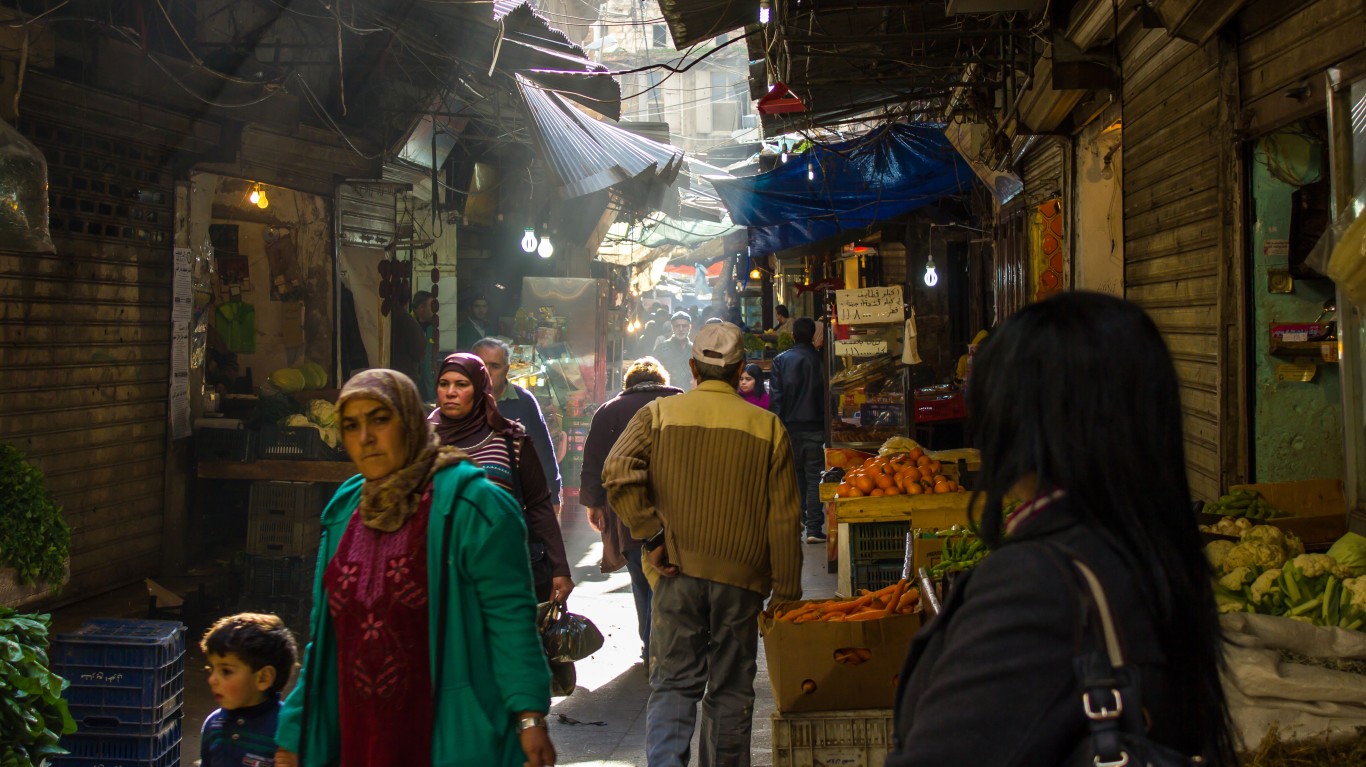
- Gold reserves as of Jul 2023: 286.8 metric tons (0.90% of world total)
- Value of gold reserves: $17.2 billion
- GDP, 2021: $23.1 billion
- Population, 2022: 5,489,739
- Region: Middle East & North Africa
18. Kazakhstan

- Gold reserves as of Oct 2023: 309.4 metric tons (0.97% of world total)
- Value of gold reserves: $18.6 billion
- GDP, 2022: $225.5 billion
- Population, 2022: 19,621,972
- Region: Central Asia
17. United Kingdom
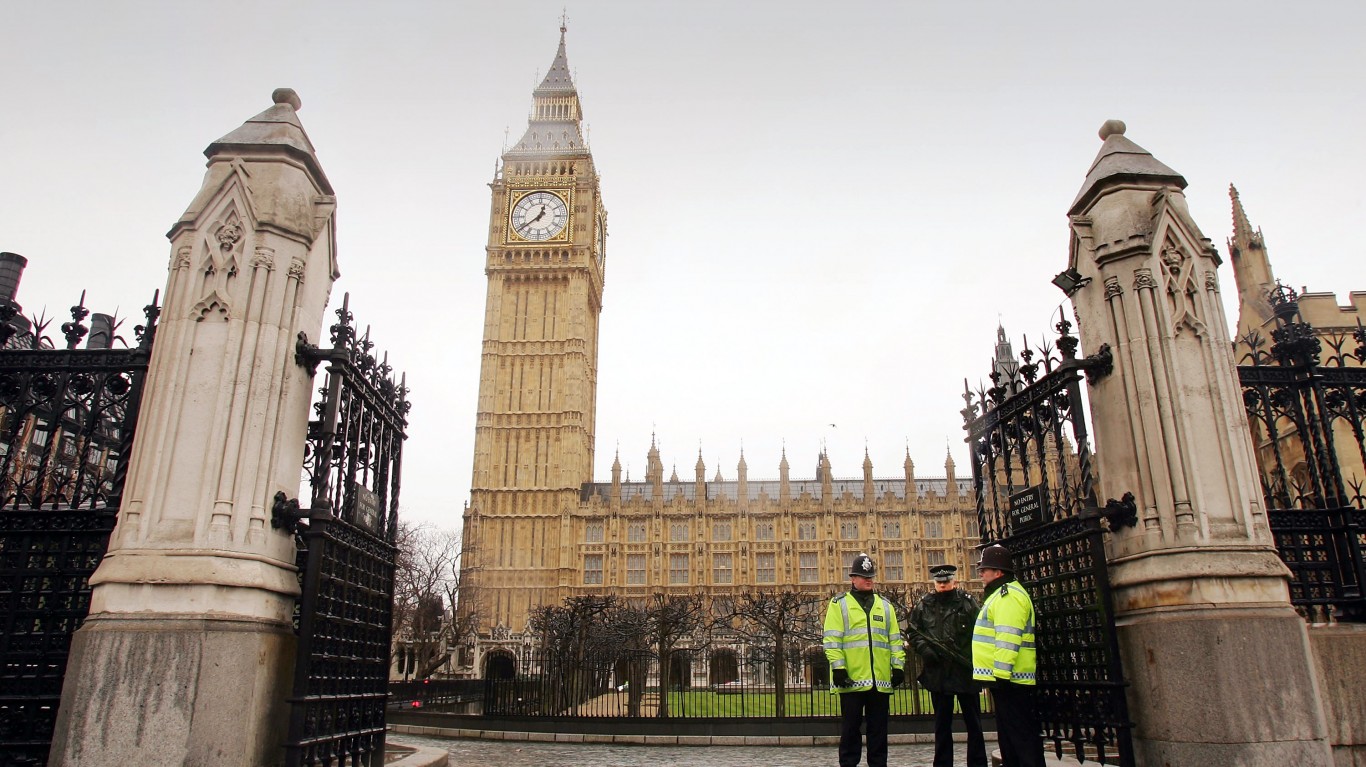
- Gold reserves as of Oct 2023: 310.3 metric tons (0.97% of world total)
- Value of gold reserves: $18.7 billion
- GDP, 2022: $3,089.1 billion
- Population, 2022: 66,971,395
- Region: Western Europe
16. Saudi Arabia

- Gold reserves as of Aug 2023: 323.1 metric tons (1.01% of world total)
- Value of gold reserves: $19.9 billion
- GDP, 2022: $1,108.6 billion
- Population, 2022: 36,408,820
- Region: Middle East & North Africa
15. Poland

- Gold reserves as of Oct 2023: 333.7 metric tons (1.05% of world total)
- Value of gold reserves: $20.1 billion
- GDP, 2022: $688.1 billion
- Population, 2022: 36,821,749
- Region: Central and Eastern Europe
14. Portugal

- Gold reserves as of Oct 2023: 382.6 metric tons (1.20% of world total)
- Value of gold reserves: $23.0 billion
- GDP, 2022: $255.2 billion
- Population, 2022: 10,409,704
- Region: Western Europe
13. Uzbekistan

- Gold reserves as of Oct 2023: 383.8 metric tons (1.20% of world total)
- Value of gold reserves: $23.1 billion
- GDP, 2022: $80.4 billion
- Population, 2022: 35,648,100
- Region: Central Asia
12. Taiwan (POC)

- Gold reserves as of Sep 2023: 423.6 metric tons (1.33% of world total)
- Value of gold reserves: $25.5 billion
- GDP, 2022: $751.9 billion
- Population, 2022: 23,250,000
- Region: East Asia
11. Turkiye
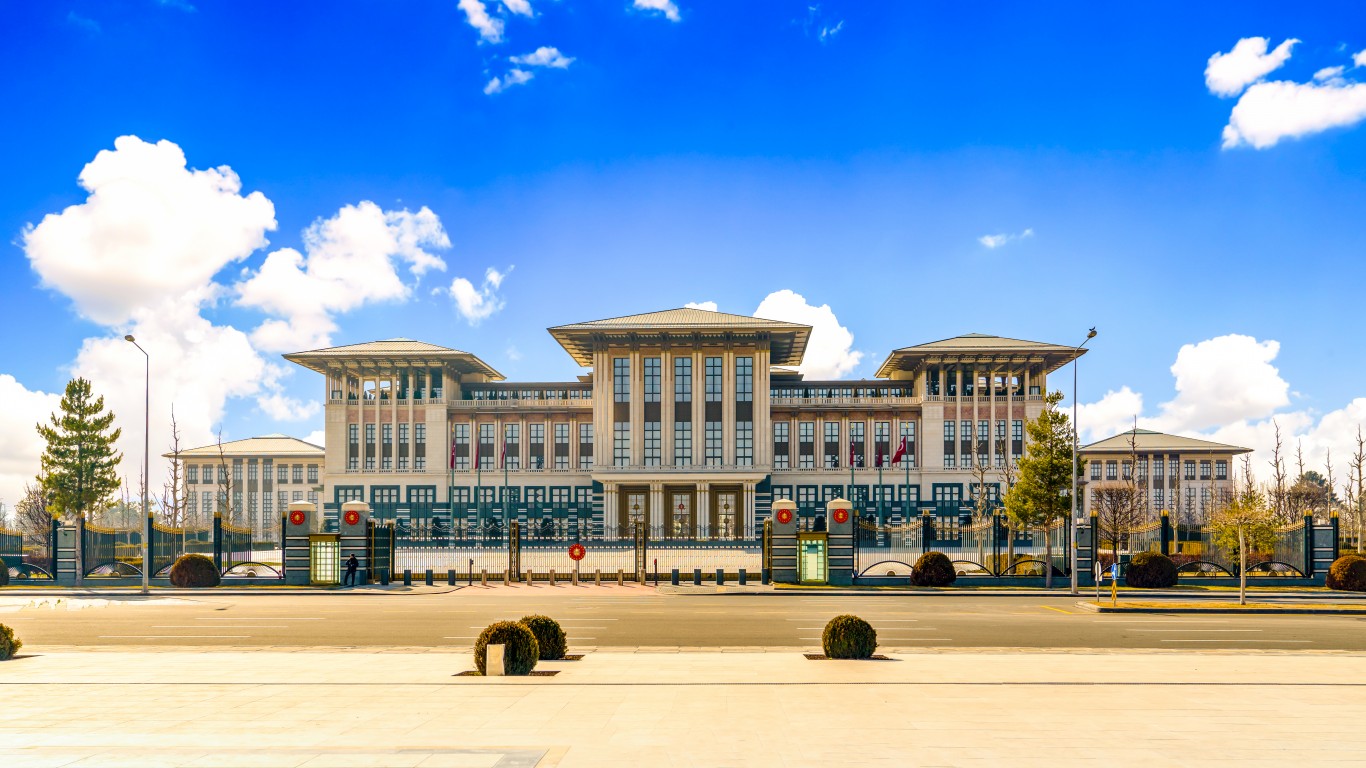
- Gold reserves as of Nov 2022: 479.0 metric tons (1.50% of world total)
- Value of gold reserves: $28.8 billion
- GDP, 2022: $907.1 billion
- Population, 2022: 84,979,913
- Region: Central and Eastern Europe
10. Netherlands

- Gold reserves as of Oct 2023: 612.5 metric tons (1.92% of world total)
- Value of gold reserves: $36.8 billion
- GDP, 2022: $1,009.4 billion
- Population, 2022: 17,700,982
- Region: Western Europe
9. India
- Gold reserves as of Oct 2023: 800.8 metric tons (2.51% of world total)
- Value of gold reserves: $48.2 billion
- GDP, 2022: $3,416.6 billion
- Population, 2022: 1,417,173,173
- Region: South Asia
8. Japan

- Gold reserves as of Oct 2023: 846.0 metric tons (2.65% of world total)
- Value of gold reserves: $50.9 billion
- GDP, 2022: $4,232.2 billion
- Population, 2022: 125,124,989
- Region: East Asia
7. Switzerland

- Gold reserves as of Sep 2023: 1,040.0 metric tons (3.26% of world total)
- Value of gold reserves: $62.5 billion
- GDP, 2022: $818.4 billion
- Population, 2022: 8,775,760
- Region: Western Europe
6. China

- Gold reserves as of Oct 2023: 2,191.5 metric tons (6.12% of world total)
- Value of gold reserves: $131.8 billion
- GDP, 2022: $17,963.2 billion
- Population, 2022: 1,412,175,000
- Region: East Asia
5. Russian Federation
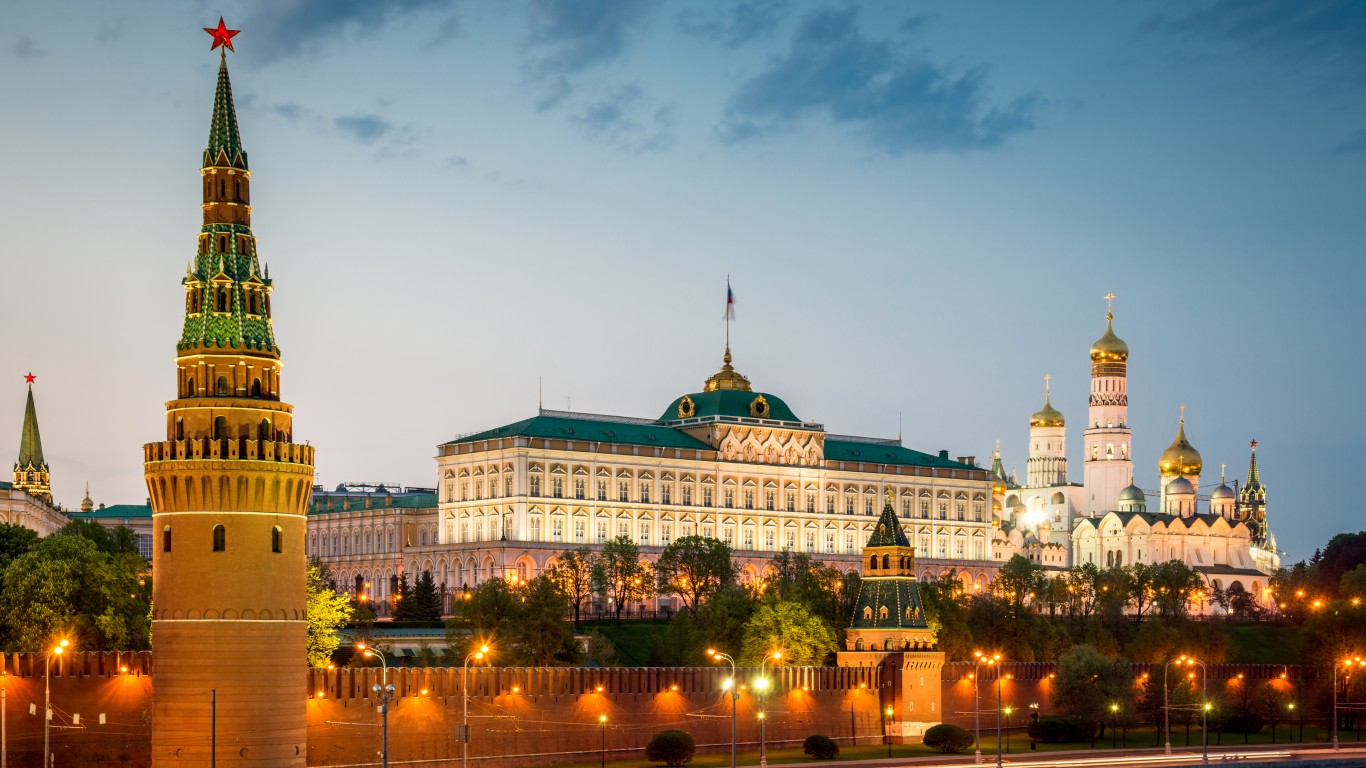
- Gold reserves as of Oct 2023: 2,332.7 metric tons (7.31% of world total)
- Value of gold reserves: $140.3 billion
- GDP, 2022: $2,240.4 billion
- Population, 2022: 144,236,933
- Region: Central and Eastern Europe
4. France
- Gold reserves as of Oct 2023: 2,436.9 metric tons (7.64% of world total)
- Value of gold reserves: $146.6 billion
- GDP, 2022: $2,779.1 billion
- Population, 2022: 67,971,311
- Region: Western Europe
3. Italy

- Gold reserves as of Oct 2023: 2,451.8 metric tons (7.68% of world total)
- Value of gold reserves: $147.4 billion
- GDP, 2022: $2,049.7 billion
- Population, 2022: 58,940,425
- Region: Western Europe
2. Germany

- Gold reserves as of Oct 2023: 3,352.7 metric tons (10.51% of world total)
- Value of gold reserves: $201.6 billion
- GDP, 2022: $4,082.5 billion
- Population, 2022: 83,797,985
- Region: Western Europe
1. United States of America
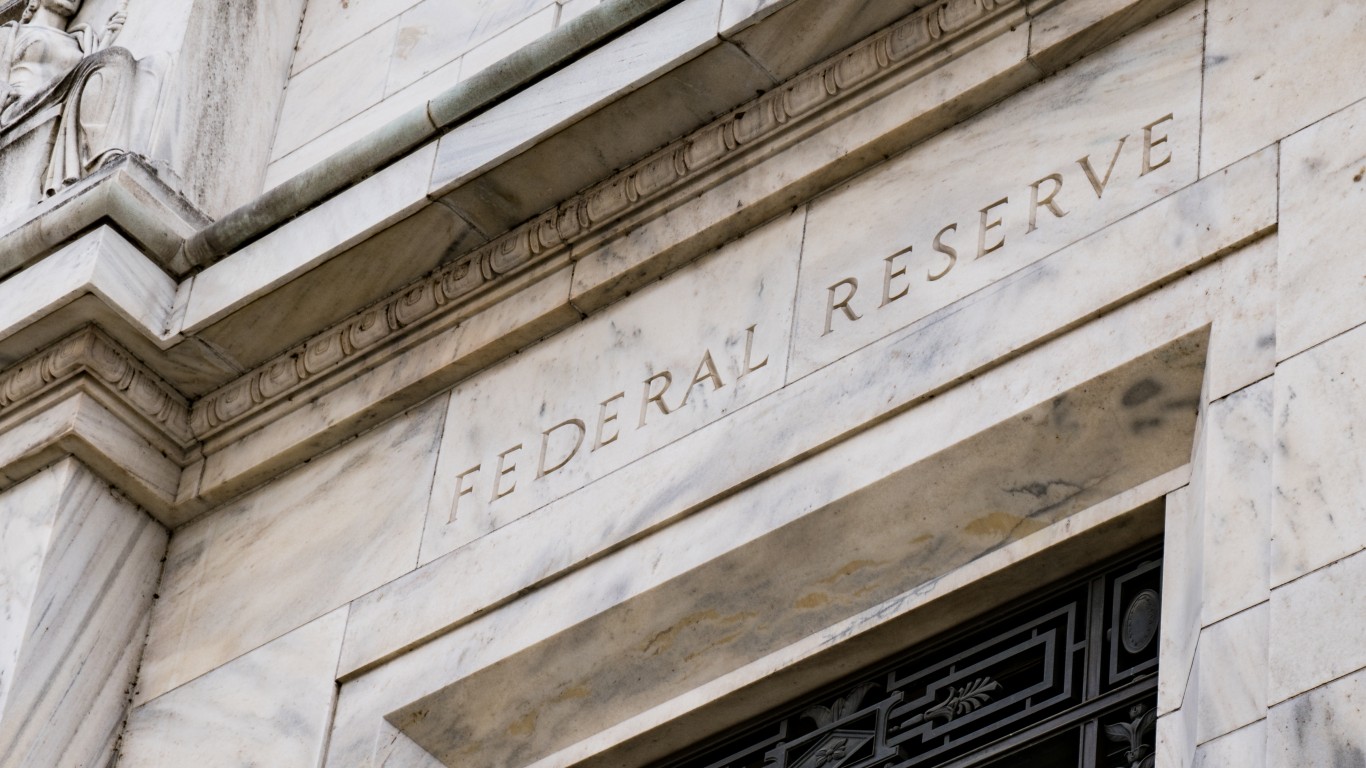
- Gold reserves as of Oct 2023: 8,133.5 metric tons (25.49% of world total)
- Value of gold reserves: $489.1 billion
- GDP, 2022: $25,439.7 billion
- Population, 2022: 333,287,557
- Region: North America
Travel Cards Are Getting Too Good To Ignore (sponsored)
Credit card companies are pulling out all the stops, with the issuers are offering insane travel rewards and perks.
We’re talking huge sign-up bonuses, points on every purchase, and benefits like lounge access, travel credits, and free hotel nights. For travelers, these rewards can add up to thousands of dollars in flights, upgrades, and luxury experiences every year.
It’s like getting paid to travel — and it’s available to qualified borrowers who know where to look.
We’ve rounded up some of the best travel credit cards on the market. Click here to see the list. Don’t miss these offers — they won’t be this good forever.
Thank you for reading! Have some feedback for us?
Contact the 24/7 Wall St. editorial team.






